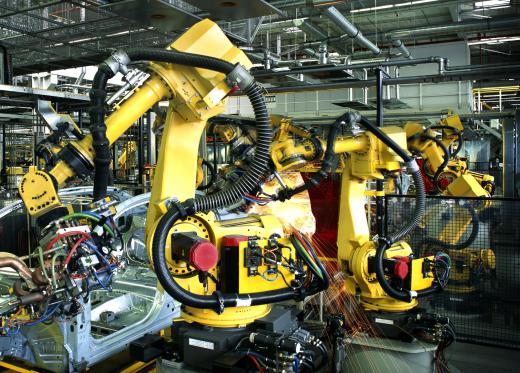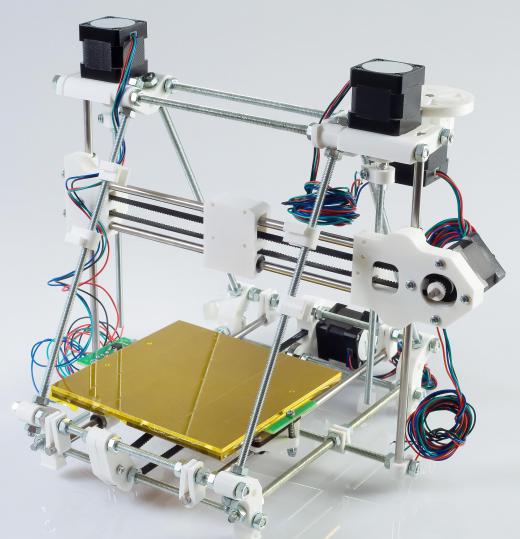Advanced manufacturing is the process of mass producing products on demand, using the latest technology maintain efficiency. Though most manufacturing processes can be easily executed by what has been traditionally referred to as "unskilled labor," this higher level of manufacturing requires specialized training. Another name for advanced manufacturing is advanced planning and scheduling (APS).
Manufacturing is heavily dependent on the volume of orders. As demand picks up, manufacturing must also pick up to meet the demand. In traditional manufacturing, the manufacturer, wholesaler or retailer may rely on stockpiled quantities to meet temporary fluctuations in demand. A large increase however, would require increasing production by adding extra shifts, extra assembly lines, or even opening new facilities. This allows the traditional manufacturer to keep its general operating schedule intact, but such changes are both costly, and risky, but it, since layoffs and plant shutdowns may be necessary if the demand ever goes back down.

Advanced manufacturing is a more flexible technique that can be specifically adjusted to changing needs. Instead of building in orders to put products into stock for later sale, advanced manufacturing takes a different approach. It builds for immediate, or nearly immediate, sale. This means products being produced are not months or years old out of the box. Rather, they may be just days or weeks old, depending on how far they must travel to get to their final destinations.

Though it may seem as though this type of arrangement would be more susceptible to staffing changes, there are ways layoffs can be avoided. First, advanced manufacturing facilities are often suited to produce more than one thing. Thus, when demand slows for one product, staff is shifted to the manufacture another. Second, the reliance on machines and electronics means nearly the same amount of staff is needed whether it is busy or slow. Of course, the highest efficiency in any business is realized when running at maximum production levels.
There are some industries that are very well suited for advanced manufacturing techniques. The computer and television industries can handle this type of manufacturing very well. Many computers are made to order, or at least built on demand. This allows the client to have a little more input than they may normally have as far as features and hardware components. In other words, advanced manufacturing is not one size fits all.
Other industries and products may be harder to adapt to an advanced manufacturing technique. Some things, such as an air conditioning units or furnace units for example, take a considerable amount of infrastructure and machinery specifically set up for the process. Therefore, finding something else to make with that machinery without significantly altering it, or the line, would be very difficult.
